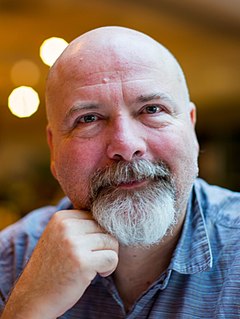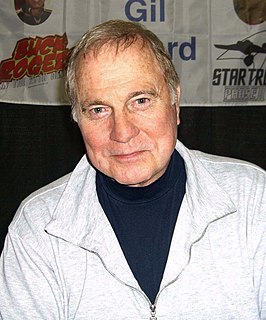A Quote by Justin Cronin
Rust, corrosion, wind, rain. The nibbling teeth of mice and the acrid droppings of insects and the devouring jaws of years. The was of nature upon machines, of the planet's chaotic forces upon the works of humankind. The energy that man had pulled from the earth was being inexorably pulled back into it, sucked like water down a drain. Before long, if it hadn't happened already, not a single high-tension pole would be left standing on the earth. Mankind had built a world that would take a hundred years to die. A century for the last light to go out.
Quote Topics
Back
Before
Being
Built
Century
Chaotic
Devouring
Die
Down
Drain
Earth
Energy
Forces
Go
Had
Happened
High
Humankind
Hundred
Hundred Years
Insects
Last
Left
Light
Like
Long
Machines
Man
Mankind
Mice
Nature
Nibbling
Out
Planet
Pole
Pulled
Rain
Rust
Single
Standing
Sucked
Take
Teeth
Tension
Water
Wind
Works
World
Would
Would Be
Years
Related Quotes
The bluebells made such a pool that the earth had become like water, and all the trees and bushes seemed to have grown out of the water. And the sky above seemed to have fallen down on to the earth floor; and I didn’t know if the sky was the earth or the earth was water. I had been turned upside down. I had to hold the rock with my fingernails to stop me falling into the sky of the earth or the water of the sky. But I couldn’t hold on.
If you go back back a few hundred years, what we take for granted today would seem like magic - being able to talk to people over long distances, to transmit images, flying, accessing vast amounts of data like an oracle. These are all things that would have been considered magic a few hundred years ago.
Science has an uncomfortable way of pushing human beings from center stage. In our prescientific stories, humans began as the focal point of Nature, living on an Earth that was the center of the universe. As the origins of the Earth and of mankind were investigated more carefully, it became clear that Nature had other interests beyond people, and the Earth was less central than previously hoped. Humankind was just one branch of the great family of life, and the Earth is a smallish planet orbiting an unexceptional sun quite far out on one arm of a run-of-the-mill spiral galaxy.
The planet earth has a life span of eight billion years, give or take a few million. People have been around for approximately forty thousand years-a virtual blink in the cosmos. It is sad that we as a species are ravaging the natural world so fast that we are jeopardizing our survival. If we wipe ourselves out, it would be the height of folly, but the earth will survive even us. It will eventually restore itself. It might take a few thousand years, and it won't be just as it was before, but its life is stronger than death.
Before reaching the final line, however, he had already understood that he would never leave that room, for it was foreseen that the city of mirrors (or mirages) would be wiped out by the wind and exiled from the memory of men at the precise moment when Aureliano Babilonia would finish deciphering the parchments, and that everything written on them was unrepeatable since time immemorial and forever more, because races condemned to one hundred years of solitude did not have a second opportunity on earth.
But this man had set down with a hammer and chisel and carved out a stone water trough to last ten thousand years. Why was that? What was it that he had faith in? It wasn't that nothin' would change. Which is what you might think, I suppose. He had to know better'n that. I've thought about it a good deal. . . And I have to say that the only thing I can think is that there was some sort of promise in his heart. And I don't have no intentions of carvin' a stone water trough. But I would like to be able to make that kind of promise. I think that's what I would like most of all.
Last century, when the beams needed replacing, carpenters used oak trees that had been planted in 1386 when the dining hall was first built. The 14th-century builder had planted the trees in anticipation of the time, hundreds of years in the future, when the beams would need replacing. Did the carpenters plant new trees to replace the beams again a few hundred years from now?
Standing on the Moon looking back at Earth - this lovely place you just came from - you see all the colours, and you know what they represent. Having left the water planet, with all that water brings to Earth in terms of colour and abudance life, the absence of water and atmosphere on the desolate surface of the Moon gives rise to a stark contrast.
Our planet has been around only for four and a half billion years. Let's imagine a planet that has life on it such as life is on Earth and it's seven billion years old. Let's say that planet evolved intelligence. Well, that intelligence would be way more advanced than what we call intelligence here on Earth. How long has intelligence been around on Earth as we've come to define it?
The century would seek to dominate nature as it had never been dominated, would attack the idea of war, poverty and natural catastrophe as never before. The century would create death, devastation and pollution as never before. Yet the century was now attached to the idea that man must take his conception of life out to the stars.
Bernard [Leach] had acquired many [Shoji] Hamada works. Some of them, it was interesting - first of all, Hamada worked in St. Ives for about four years before returning to Japan to start his own pottery. He had exhibitions in London, and if these exhibitions didn't sell out, the galleries were instructed to send the remaining work down to the Leach Pottery, where they would go into the showroom for sale. If Bernard saw one that hadn't sold that he really admired, then he would take it (he would buy it), and it would go into the house.
In order for life to have appeared spontaneously on Earth, there first had to be hundreds of millions of protein molecules of the Ninth Configuration. But, given the size of the planet Earth, do you know how long it would take for just one of these protein molecules to appear by chance? Roughly 10 to the 243rd power, billions of years; and I find that far, far more fantastic than simply believing in a god.


































